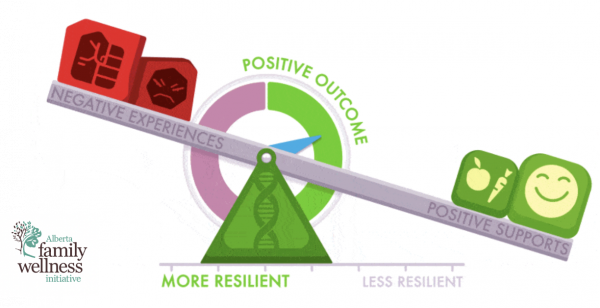Improving Patient Care using the Brain Story
February 22, 2022
Dr. Teresa Killam, MEd MD CCFP FCFP, Dr. Serena Jenkins, PhD, & Dr. Michael Giuffre, MD MBA FRCPC
Matthew, a 57yo otherwise stable male patient, presented to the Emergency Room with rectal bleeding. He had a positive fecal occult blood test four years prior but had not followed-up. The ER physician advised a colonoscopy, but Matthew declined. The physician proceeded to ask Matthew about his past experiences, how they impacted him, and what the physician could do to make the procedure more comfortable. In response to this trauma-informed approach, Matthew agreed to have the colonoscopy if he could be sedated with a trusted loved one present. This approach revealed that Matthew was not intentionally being negligent of his health or non-compliant, but that he had been sexually assaulted by his hockey coach as a child and the procedure could be re-traumatizing for him. Generally, patients refuse care for valid reasons that they may not disclose unless asked the right questions.
Using a trauma-informed approach to asking patients about their ACE history directly improves patient care. At the population level, high ACE scores are associated with increased prevalence of cancer, ischemic heart disease, chronic lung disease, skeletal fractures, and liver disease.[i] Asking about a patient’s trauma history may also help prevent misdiagnosis; for example, in cases of sexual abuse, there could be undisclosed symptoms of an STI or HIV infection for which a physician would not know to test. The majority of patients report that being asked about their ACE history made them feel better understood, cared for, and thankful, and that they felt safe and respected having these conversations in a primary care setting. Furthermore, the addition of ACE history taking is only a minor time commitment, with physicians reporting it adds 1-10min to an appointment depending on the patient.[ii]
ACEs and other forms of toxic stress derail brain development and weaken the foundations of resilience.[iii],[iv] Fortunately, trauma is not deterministic; healing from trauma and building resilience is possible in the presence of positive supports and resources to build skills and abilities.[v],[vi] As primary care providers, the goal should be to lessen the impact of a patient’s “red boxes” by using trauma-informed care and to contribute “green boxes” by providing a safe, stable, supportive relationship and environment and referring patients to positive supports in the community as needed. In this way, we can help tip the scale towards positive health outcomes for patients, which begins by understanding the underlying causes of their health concerns.

The Resilience Scale depicts how negative experiences (“red boxes”), positive supports (“green boxes”), and skills and abilities (the “fulcrum”) interact to determine an individual’s resilience – their ability to adapt and stay healthy in the face of adversity. Resilience is not an innate characteristic, but an ability that is built over time. Our goal is to reduce the impact of red boxes, add green boxes, and give more leverage to the green boxes by pushing the fulcrum to the left.
[i] Felitti, V. J., Anda, R. F., Nordenberg, D., Williamson, D. F., Spitz, A. M., Edwards, V., Koss, M. P., & Marks, J. S. (1998). Relationship of child abuse and household dysfunction to many of the leading causes of death in adults: The adverse childhood experiences (ACE) study. American Journal of Preventative Medicine, 14(4), 245 – 258. DOI:10.1016/s0749-3797(98)00017-8
[ii] Unpublished data from Dr. T Killam
[iii] Alberta Family Wellness Initiative. (n.d.). Stress: How positive, tolerable, and toxic stress impact the developing brain. https://www.albertafamilywellness.org/what-we-know/stress/
[iv] National Scientific Council on the Developing Child. (2005). Excessive stress disrupts the architecture of the developing brain: Working paper 3. https://developingchild.harvard.edu
[v] Alberta Family Wellness Initiative. (n.d.). Resilience: Why do some of us bounce back from adversity better than others? https://www.albertafamilywellness.org/what-we-know/resilience-scale
[vi] National Scientific Council on the Developing Child. (2015). Supportive Relationships and active skill-building strengthen the foundations of resilience: Working paper 13. https://developingchild.harvard.edu
